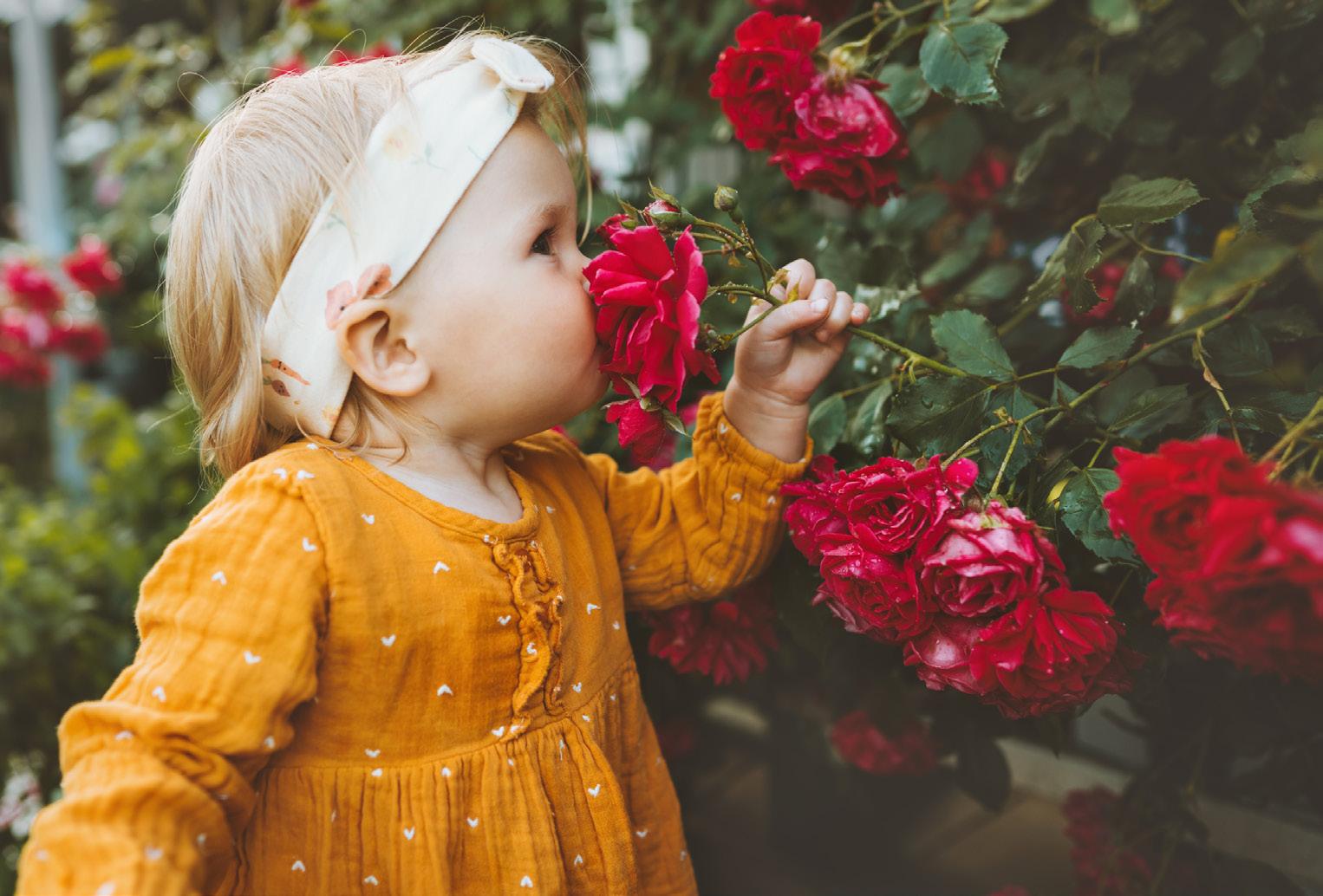
2 minute read
Smell the roses
RABBI LEVI WOLFF CHIEF MINISTER THE CENTRAL SYNAGOGUE
The great nineteenth century American essayist Ralph Waldo Emerson is purported to have once said, "A beautiful soul always dwells in a beautiful world."
These profound words immediately resonated with me and have had a long-lasting effect, especially during this Hebrew month of Shevat. Amongst other things, we reflect on what transpired on the tenth day, Yud Shevat, back in 1951 –the date when the Rebbe accepted the leadership of the Chabad movement.
For years post war, so many struggled to see both the beauty and bounty in their midst. World Jewry was grappling to find its bearings after the Holocaust, simultaneously mourning its incalculable losses and nursing deep wounds and scars. Within all this, the Rebbe was able to gaze into the horizon and see the potential for a beautiful world.
And it wasn’t just semantics.
On a winter’s night, as he sat in the small, overcrowded Brooklyn shule – soon to be universally known by the moniker ‘770’, he addressed an audience begging for his leadership and wisdom. The Rebbe commenced his first-ever Chassidic discourse with the words, Basi L’Gani, incorporating a verse from Shir Hashirim, Song of Songs, describing the world as, wait for it … a garden. Not a barren desert, minefield, or raging sea, but a soulful space that was both peaceful and verdant.
Over the four-plus decades that ensued, the Rebbe often returned to this theme, highlighting that even though there was often just cause for many to view the world as void of vegetation, oftentimes riddled with hate, violence, sickness, and poverty; our planet had the potential to be a soulful space of bliss and calm. Within that we have the opportunity to define our purpose while here on Earth. Without doubt, one needs to be a beautiful soul to see past the noise and chaos. The Rebbe humbly granted us permission to view it all through his light-filled lens.
At the conclusion of that initial discourse, the Rebbe placed the destiny of world Jewry in our collective hands explaining that we are the changemakers, the trailblazers. We are the ones who will take care of whatever unfinished business still lingers and we can help heal our fractured world and unite our nation spread across the Seven Seas.
To dwell in a beautiful world has nothing to do with imagination and everything to do with expectations of both ourselves and our surroundings.
The Rebbe insisted that life was not just about personal enjoyment but was also about service.
I recall Rabbi Chaim Gutnick, z”tl, sharing with me that after he escaped the European inferno of World War II and arrived in Australia, he wanted to continue his journey and settle in the United States. Instead, the Rebbe suggested he remain Down Under.
With near-prophetic clarity, the Rebbe explained that a large number of survivors would soon reach Australian shores and young Rabbi Gutnick would need to be here to “restore their faith in a G-d they think has forsaken them”. That is, to show them that, despite everything, the world was still a garden and that every person has an implicit social contract with his or her environment, to help it bloom and blossom.
I feel it is no coincidence that on that same date almost five decades later, in 1998, my wife Chanie and I found our little Australian green space to nurture, first arriving in Perth and settling here on the east coast in Sydney.
We have energetically tilled and toiled the land ever since – this will forever be my greatest honour, as the Rebbe foresaw, the spiritual harvest is bountiful.
Earlier this month on Yud Shevat, we marked a quarter-century since our move to this Great Southern Land. Let us all not only rededicate ourselves to one another but also to G-d. This will ensure the world is the lush garden it was meant to be – for you, for me, for us all.








